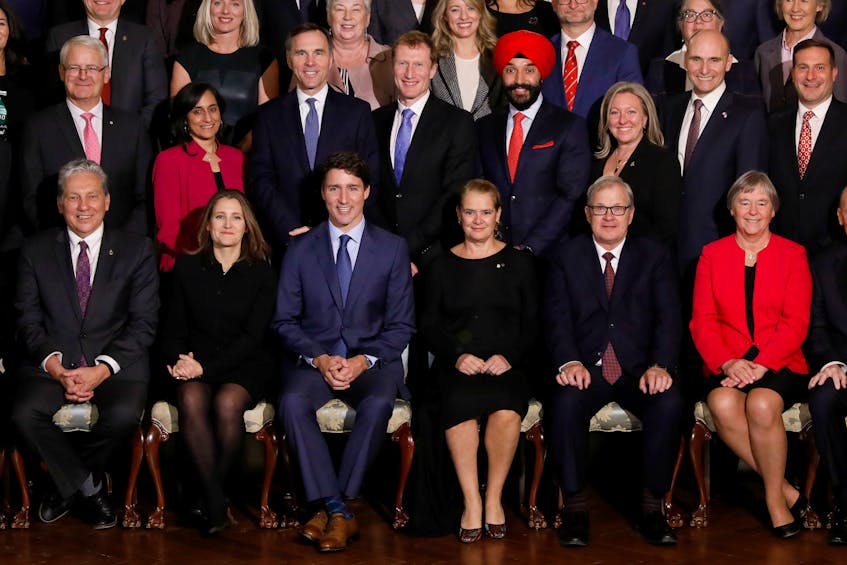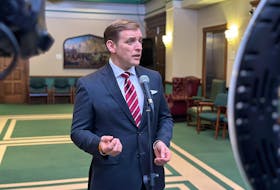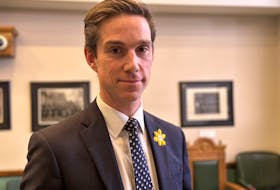What’s in a name?
Often, nothing more than lip service.
And what’s in a jumbo-sized cabinet? Also, often nothing more than lip service — and, of course, cabinet-level ministerial paycheques.
Wednesday, Prime Minister Justin Trudeau named his cabinet, with 36 ministers in all. (That includes pay of $264,000 apiece, in case you’re counting. But if you are counting, keep in mind that a ministerial position is far from just pay for ministers — every time you add a minister, you add a crew of administrative support as well. Even in small provinces, a minister’s office can cost $500,000 a year or more.)
While large cabinets may make it look like everyone’s interests are on the very front burner, the overall priorities really don’t change very much. But the functionality can change.

Ask yourself: if you were sitting around a board room table with 36 other people at your company, how long would the meeting be — especially if they were type-A talkers keen to make their presence known? What would actually be achieved? Admit it — pretty much nothing.
Sometimes, as with the current federal cabinet, departments seem to trip over each other. For example, there’s a minister of Economic Development and Official Languages, and a minister for Women and Gender Equality and Rural Economic Development.
There are, in all, five federal departments with “development” in their name.
There’s even a minister of Digital Government.
And then there’s my personal favourite — a minister of Middle Class Prosperity.
Give me a break.
Sometimes, trying to have a place-marker for every concern causes some unintended hilarity. Newfoundland and Labrador’s onetime clearinghouse department of Industry, Trade and Rural Development wound up being shortened in casual conversation to the acronyms “In-Turd” or “I-Turd.”
Sometimes, it leads to scrappy little disputes: when the government of Newfoundland and Labrador switched the name of its Tourism and Culture department to Tourism, Industry and Innovation, the move caused a slighted arts community to go into spasm.
Less than a week later, the department was renamed Tourism, Culture, Industry and Innovation.
Nova Scotia has a Department of Seniors, highlighting its concern about aging Nova Scotians. The department has a cabinet minister and a deputy minister — and a total of nine employees, four of which are in executive administration. The name’s a sure sign of the importance of older people, though — never mind that there are 75,000 provincial public sector employees in the province, and the nine in the Seniors Department make up just 0.012 per cent of total public sector staffing.
Not long ago, a similar provincial department in Newfoundland and Labrador had a minister, deputy minister, director of communications, media relations manager, public relations specialist, two assistant deputy ministers and six director-level positions — so, 13 people essentially overseeing the remaining 24 in the department.
And then there’s my personal favourite — a minister of Middle Class Prosperity.
Middle Class Prosperity takes that to new heights: it’s not going to have any staff, but will operate as a vestigial finger of the federal Finance Department. Since the federal Finance Department has so many other responsibilities, it’s likely that middle class prosperity will hardly be front of mind.
Truth is, specialty departments can be little more than an administrative hat-tip. It’s a way of saying “We’re paying attention” without actually having to come up with effective policies.
The last Trudeau department of special interest, Democratic Institutions (which was established to usher in crucial changes to our election system), no longer has a minister.
Chances are, Middle Class Prosperity will end up there at some point in the future as well.
But by then, we may have a brand new slate of important ministries — important, perhaps in name only, but prominent enough to serve as a balm to those who feel unnoticed and aggrieved.
Russell Wangersky’s column appears in SaltWire publications across Atlantic Canada. He can be reached at [email protected] — Twitter: @wangersky
MORE FROM RUSSELL WANGERSKY









